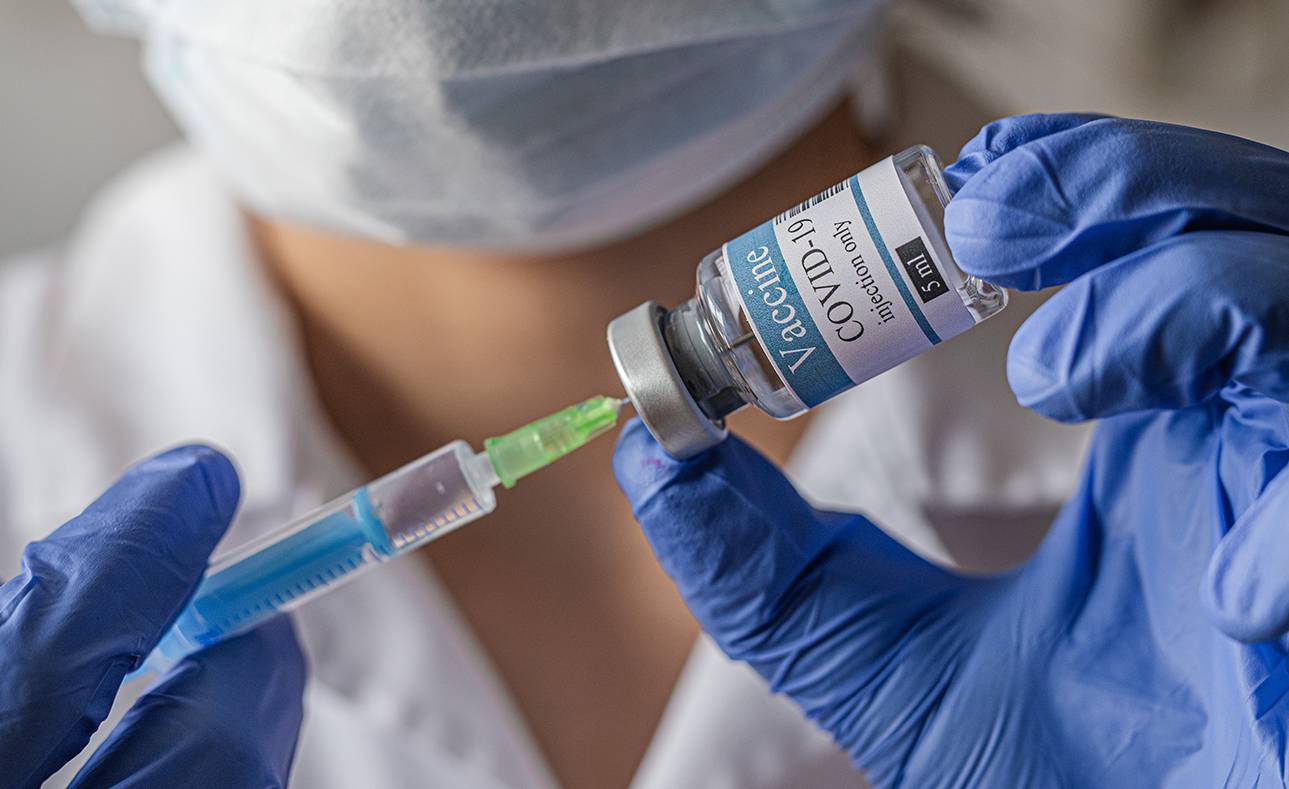By Dr. Rodney E. Rohde
Texas State University Regents’ and Distinguished Professor, Chair for the Clinical Laboratory Science Program in the College of Health Professions and Associate Director of Translational Health Research Center

After three years of the ongoing SARS-CoV-2 COVID-19 pandemic, the world has settled into the realization that ongoing vaccination for protection against this highly mutating virus is likely going to be part of the global experience going forward. Much like influenza [flu] vaccination, we will likely be rolling up our sleeve annually for COVID-19 protection.
As a reminder, the initial primary series is the initial dose(s) of a COVID-19 vaccine. For Pfizer, Novavax COVID-19 Vaccine, and Moderna mRNA vaccines, the primary series is two vaccine doses. For the Johnson & Johnson (J&J) COVID-19 vaccine, the primary series is a single vaccine dose.
Typically, after the primary series, an additional subsequent dose is given (2-dose series of an mRNA COVID-19 vaccine [Pfizer or Moderna] or a single dose of Novavax COVID-19 Vaccine and J&J COVID-19 vaccine). Usually, only individuals who are moderately to severely immunocompromised receive this dose, because they may not have received adequate protection from their initial series.
A booster dose is a supplemental vaccine dose given at some point after a primary vaccine series because protection has likely diminished over time. There are national recommendations for a single vaccine booster dose in some populations via the Centers for Disease Control and Prevention.
64% of Texans are fully vaccinated while only about 28% are boosted with the most recent bivalent vaccine, according to the Texas COVID-19 Vaccine Tracker
68% of the U.S. population is fully vaccinated while only 33% have received a booster dose, according to the U.S. Coronavirus Vaccine Tracker
While we know that fully vaccinated and/or boosted individuals are not totally immune to an infection, all indications from research and epidemiologic data show that it strongly protects one from death, severe COVID-19 disease, and remaining out of the hospital.
It is concerning that roughly only one-third of Texas and U.S. citizens have received a booster dose for COVID-19.
Remember, this virus is an RNA virus that has shown its diabolical nature regarding mutation events which create new variants. A bivalent booster dose enables us to protect ourselves against the most current virus variants in circulation, as well as overall protection for the original virus form.
The scientific and healthcare world are still learning about how long a recovered person is protected after surviving an infection with SARS-CoV-2 [natural immunity]. Researchers are also learning how long vaccine-induced immunity [protection from a vaccine only] lasts.
However, studies show that vaccines provided better protection than previous infection and that protection is even stronger in those who have both vaccination and recovery from infection. Getting the COVID-19 vaccine is a safer way to gain immunity than by getting the infection itself. So, it is important that everyone stay up to date with all recommended COVID-19 vaccines.
Unfortunately, many have fears and concerns for safety of vaccines. The CDC vaccination schedule calls for children to receive up to 14 inoculations by the age of six – many of them vaccines developed within the last twenty years. Some college students and parents distrust these vaccines regarding side effects. Research, however, shows that most of our biggest fears about vaccinations are unfounded.
For example, many believe that natural immunity is better than a vaccine. While surviving an infection can certainly provide protection, some microbes may cause death or permanent health issues if allowed to cause an infection.
People are also concerned about unsafe toxins used in vaccines. It's true that chemicals like formaldehyde, aluminum, or mercury are toxic to the human body in certain levels, but only trace amounts of these chemicals are used in FDA approved vaccines.
Misinformation is everywhere, such as an infant immune system being too weak for so many vaccines. However, children’s immune systems are stronger than you might think. Based on the number of antibodies present in the blood, a baby would theoretically respond to around 10,000 vaccines at one time! Misinformation and outright falsehoods are easier than ever to spread and share via social media and traditional digital media channels. But, misinformation can be dangerous and even deadly.

About Dr. Rodney E. Rohde
Dr. Rohde holds certifications as a specialist in virology, specialist in microbiology, and molecular biologist from the American Society for Clinical Pathology. He spent a decade as a public health microbiologist and molecular epidemiologist with the Texas Department of State Health Services Bureau of Laboratories and Zoonosis Control Division, including two stints as a Visiting Scientist with the CDC, prior to his academic career. His research interests are diverse but focus on adult education and public health microbiology, specifically with respect to rabies virology, oral rabies wildlife vaccination, antibiotic resistant bacteria and molecular diagnostics/biotechnology. He has published numerous articles and has received a variety of grant support for his research.
Share this article
For more information, contact University Communications:Jayme Blaschke, 512-245-2555 Sandy Pantlik, 512-245-2922 |
